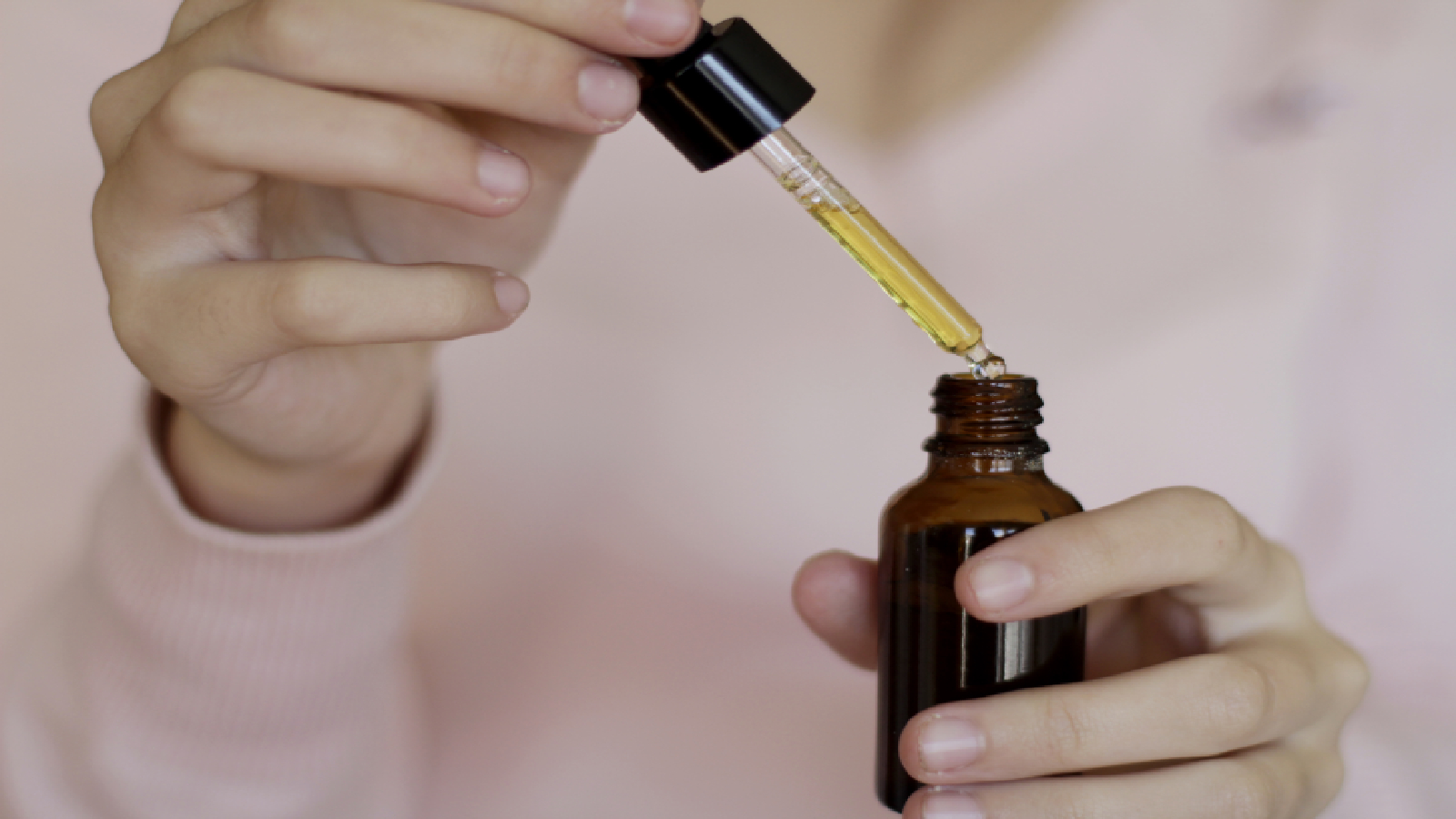What is jojoba oil and how does it work with your skin?
Jojoba oil is more than a carrier for other essential oils—it has a series of beneficial properties for the skin, too


Jojoba oil is one of the many marvelous fatty oils that can improve the health of your skin.
If you battle dry skin, marks from acne or other skin conditions, you might be able to utilize a jojoba oil-based skincare routine to beat it.
Read on to discover what jojoba oil is, how it works, and what it can do for you.
What is jojoba oil?
Jojoba oil comes from a seed that grows on a shrub—the seeds are sometimes called deer nuts, because deers graze on their foliage. The jojoba plant is commonly found in warm, desert-like areas of North America such as northern Mexico, California, and Arizona.
About 50% of each seed is made of a wax-like oil, from which the product is derived. Jojoba oil is full of monounsaturated fatty acids. Depending on where it is grown, it might include:
- Palmitic acid: According to the National Center for Biotechnology Information (NCBI), palmitic acid is an important fatty acid used in making soaps, lubricating oils, some food additives, and waterproofing materials.
- Palmitoleic acid: The NCBI reports that this acid can be used as a human metabolite, a polish for cars, floors, etc. and certain antifoaming and coagulating agents.
- Stearic acid: This acid is often used as an anti-inflammatory treatment, especially for certain skin conditions.
- Oleic acid: This acid can be used as a flavoring agent. In chemical use, it is most often used to reduce friction and either increase or decrease adhesion.
- Arachidic acid: This acid is used in a variety of products. It can act as a lubricant, a polishing agent, a lubricant, and an adhesive. It is also used sometimes in children's cosmetics.
As you can see, jojoba's uses go far beyond skincare routines. The natural substance also often contains vitamin E, which has additional health benefits. However, despite the prevalence of good fatty acids, jojoba oil is not digestible by the human body and should not be eaten.
Jojoba oil benefits
Containing so much in the way of fatty acids, it's no real surprise that jojoba oil's uses are many and varied. It can be especially beneficial to your skincare routine for several reasons. For example:
Sign up for the woman&home newsletter
Sign up to our free daily email for the latest royal and entertainment news, interesting opinion, expert advice on styling and beauty trends, and no-nonsense guides to the health and wellness questions you want answered.
- Jojoba oil contains sebum nearly identical to that which your skin produces. This means that when you use it on your skin, your body doesn't notice the presence of extra oil that needs to be cleaned off. In some other substances, that feeling of extra oil could cause your skin to dehydrate, making it more difficult to keep moisturized and healthy.
- Hypoallergenic, jojoba oil rarely causes any kind of reaction. Instead, it provides a nice sealing covering for your skin where needed.
- Jojoba oil is a humectant. This property means that it provides a protective barrier on your skin that reduces the chance of infections such as acne.
- This oil is an antioxidant. Jojoba works with vitamin E to fight away toxins that reach your skin.
- It works as an anti-inflammatory. If your skin is inflamed from infection or injury, jojoba oil can help reduce the inflammation.
- Natural oils like jojoba can help in healing. Specifically, it encourages skin cells to reconnect after being separated by a cut or other injury.
All of these properties are derived from the strong, natural, healthy fatty acids and vitamins jojoba oil contains. Because it occurs in nature, it doesn't cause severe reactions to your body's skin and can help protect it instead. It's a great natural addition to a healthy skincare routine.
Jojoba oil side effects
If ingested, the uric acid in jojoba oil can cause serious damage to the heart and other organs, so this liquid should never be eaten or drunk. When used on the skin, however, jojoba oil rarely causes any side effects although for some people it can cause an allergic reaction (although due to its hypoallergenic properties, this kind of reaction is very rare).
If you use jojoba oil, try applying a very small amount to your wrist or the inside of your elbow to ensure no rash appears before you use it elsewhere.
When to use jojoba oil (and when not to)
Jojoba oil is used regularly in moisturizing products. You will find it in many of the best shampoos and conditioners, lotions, face creams, lip balms, and other cosmetic treatments.
You can also buy pure jojoba oil and mix it with these existing products. Or, you can apply it directly to your skin to soothe irritations, injuries, scars, or skin complaints such as acne. Jojoba oil has also been known to help cold sores and to slow down the aging of the skin. If you have bad dandruff, or need to hydrate your hair, jojoba oil is a great natural, lightweight option.
Usually, pure jojoba oil is straw-like in color and absorbs naturally into the skin. If you apply jojoba oil and find it sitting on the surface of your skin, it may not be 100% pure—when buying plain jojoba oil, for the best results, make sure you get the purest version you can.
Don't use jojoba oil to the exclusion of other medications or treatments—it's not magical. Also, be sure that you don't ingest it since your body will not be able to digest it.
The power of jojoba oil
Jojoba oil is certainly not a cure-all treatment, but it does have lots of great benefits. It can help moisturize your skin and hair, soothe irritants, and deal with dandruff and acne.
If you're interested in using natural products to help improve your body's health, you may want to give jojoba oil a try. And keep in mind that scientists are still studying jojoba oil, so they may come up with a lot more benefits in the future.
A lifelong creative writer and beautyphile, Eunice Lucero-Lee graduated from De La Salle University in 2002 and was hired a year later to front all beauty coverage for Pink Magazine. A beauty, astrology, and pop culture obsessive and insider for over 18 years, Eunice is an internationally published editor (and now certified astrologer) whose work has been featured in publications such as Cosmopolitan, Esquire, and The Numinous, among many others.